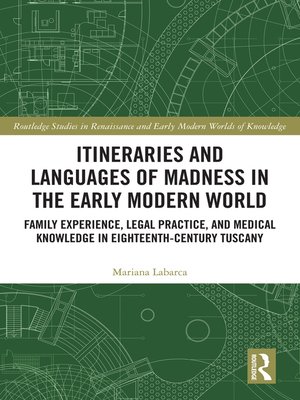Itineraries and Languages of Madness in the Early Modern World
ebook ∣ Family Experience, Legal Practice, and Medical Knowledge in Eighteenth-Century Tuscany · Routledge Studies in Renaissance and Early Modern Worlds of Knowledge
By Mariana Labarca

Sign up to save your library
With an OverDrive account, you can save your favorite libraries for at-a-glance information about availability. Find out more about OverDrive accounts.
Find this title in Libby, the library reading app by OverDrive.



Search for a digital library with this title
Title found at these libraries:
| Library Name | Distance |
|---|---|
| Loading... |
Drawing on a wide range of sources including interdiction procedures, records of criminal justice, documentation from mental hospitals, and medical literature, this book provides a comprehensive study of the spaces in which madness was recorded in Tuscany during the eighteenth century. It proposes the notion of itineraries of madness, which, intended as an heuristic device, enables us to examine records of madness across the different spaces where it was disclosed, casting light on the connections between how madness was understood and experienced, the language employed to describe it, and public and private responses devised to cope with it. Placing the emotional experience of the Tuscan families at the core of its analysis, this book stresses the central role of families in the shaping of new understandings of madness and how lay notions interacted with legal and medical knowledge. It argues that perceptions of madness in the eighteenth century were closely connected to new cultural concerns regarding family relationships and family roles, which resulted in a shift in the meanings of and attitudes to mental disturbances.







